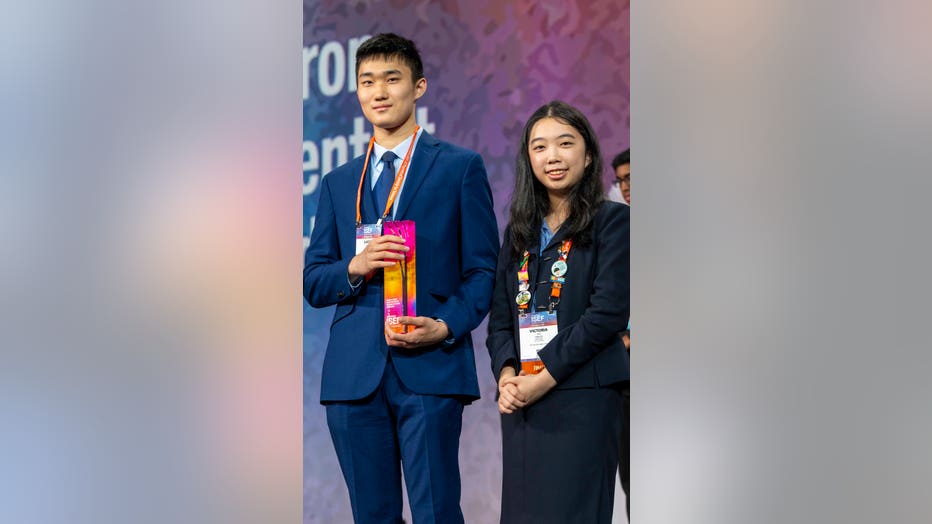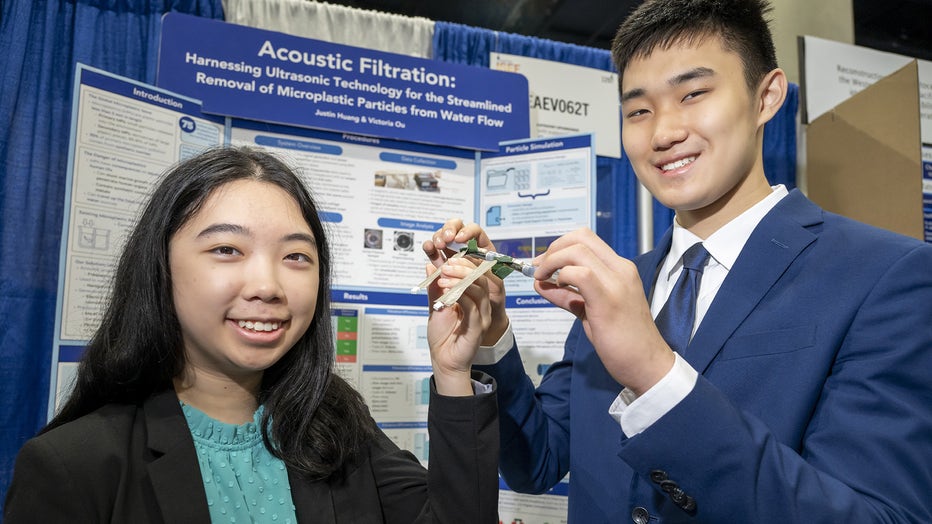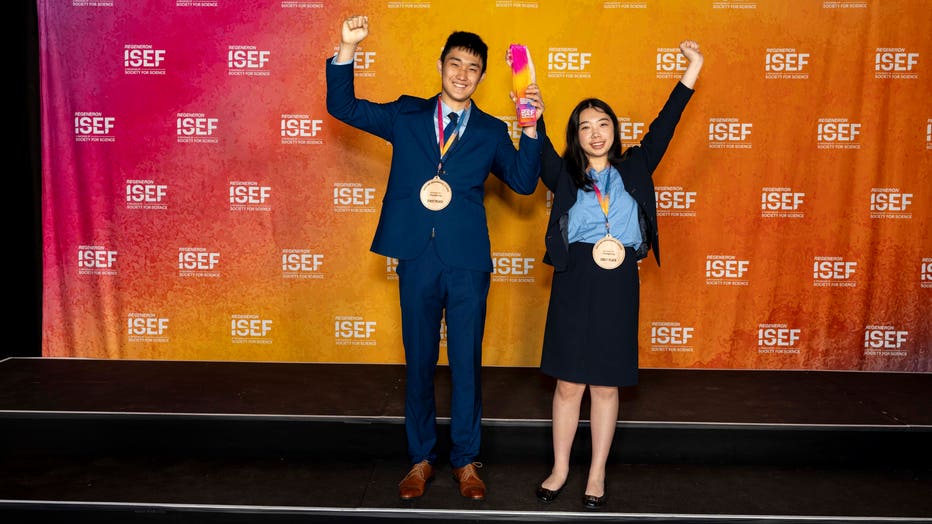The Woodlands students win $50,000 for microplastics filtration system
THE WOODLANDS, Texas - Two high school students from The Woodlands were awarded a $50,000 prize at an international science and engineering competition for creating a filtration system to remove microplastics from water.
Justin Huang and Victoria Ou from College Park High School won the Gordon E. Moore Award for Positive Outcomes for Future Generations at the Regeneron International Science and Engineering Fair earlier this month.

Justin Huang and Victoria Ou (Photo: Society for Science/Chris Ayers)
SUGGESTED: Study finds microplastics linked to thousands of premature births
According to the Society for Science, the two 17-year-olds created a prototype system that uses ultrasonic waves to filter microscopic plastic particles from water, removing 84% to 94% of the microplastics in a single pass during lab tests.
Microplastics are tiny plastic particles that result from the breakdown of larger plastics or are sometimes manufactured as microbeads for use in products. They persist in the environment for a long time and accumulate in water and food sources, with research still being done on their impact on human health.

Victoria Ou and Justin Huang (Photo: Society for Science/Lisa Fryklund)
According to the Society for Science, the Gordon E. Moore Award for Positive Outcome recognizes the awardees for "making an enduring difference for future generations, through rigorous scientific inquiry and a passion for discovery and invention."
Huang and Ou also won a $5,000 Earth and Environmental Sciences award.
SUGGESTED: Microplastics found in 16 proteins sampled in study, including plant-based alternatives

Justin Huang and Victoria Ou (Photo: Society for Science/Chris Ayers)
The students are reportedly now working towards scaling up and fine-tuning their filtration system.
Nearly 2,000 competitors from 9th grade to 12th grade competed at the fair in Los Angeles, and more than $9 million was awarded.

